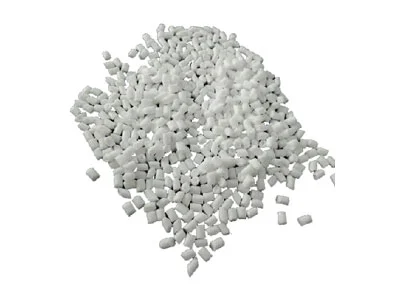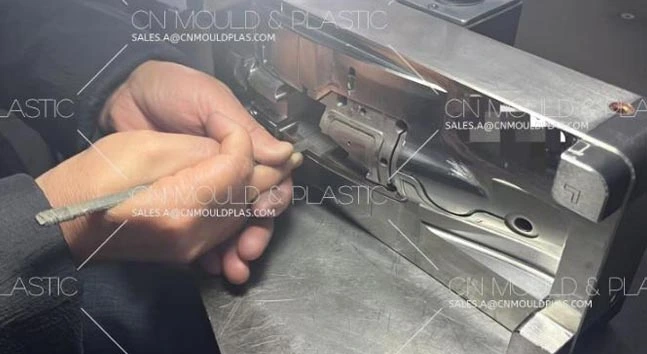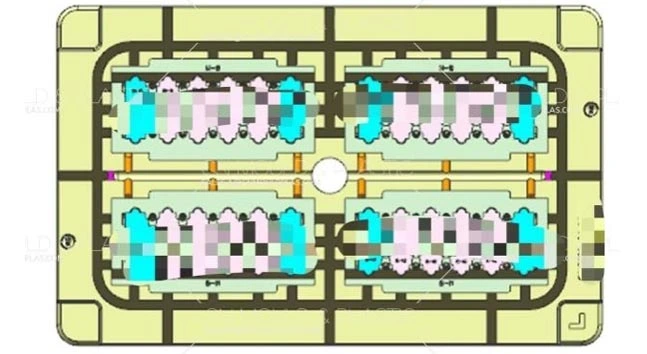12-30
(1) Drawbacks of Polishing Quality Issues1) The edge of the cavity’s inner hole may have collapsed corners, mixed angles, or bruises, and after polishing, the opening of the inner hole may enlarge (c...
Polycarbonate (PC) is a thermoplastic polymer with a wide range of applications. It is produced by chain growth polymerization of monomer propylene. It is a white strong material with high chemical resistance. PP can also maintain electrical stability under humidity and high temperature, therefore it become an ideal material for manufacturing electronic and electrical parts. The three major application areas of PC engineering plastics are the glass assembly industry, the automobile industry and the electronics and electrical industry.

| PC | LUPOY PC 1303EP-22 | LEXAN™ Resin EXL1414T | ALCOM LD2 PC 1000 UV 15003 CC1005-15 | POLYKING@ 5010 | Unit | Testing Standard |
| Data sheet | Click to Download | Click to Download | Click to Download | Click to Download | ||
| Manufacturer | LG | SABIC | ALBIS | POLYKING | ||
| Description | LUPOY PC 1303EP-22 resin is designed for extrusion and injection molding products. It exhibits an excellent physical property balance of heat resistance, transparency and impact strength. | Lexan* EXL1414T polycarbonate (PC) siloxane copolymer resin is a transparent injection molding grade. This resin offers extreme low temperature (-40 °C) ductility in combination with medium flow characteristics and excellent processability with opportunities for shorter IM cycle times compared to standard PC. Lexan EXL1414T resin is a general purpose product available in transparent and opaque colors and is an excellent candidate for a broad range of applications. | High light transmission, dependent on wall thickness, light scattering, highlight diffusion, dependent on wall thickness, easy flow | Polycarbonate, in line with RoHS standards, environmental protection flame retardant grade products. High rigidity, high impact resistance, high strength, high temperature resistance, excellent mechanical properties, etc. Widely used in electronic and electrical, automotive, communication, mechanical engineering, sports equipment and other fields. | ||
| Appearance | Natural color | Transparent | Natural color | Natural color | ||
| UL Yellow Card | / | / | / | / | ||
| Physical | Dry | Dry | Dry | Dry | Unit | Test Method |
| Density | 1.2 | 1.19 | 1.19 | 1.2 | g/cm³ | ASTM D 1238 |
| Mechanical | Dry | Dry | Dry | Dry | Unit | Test Method |
| Tensile Modulus | 2340 | 317000 ( psi) | 2400(ISO 527) | / | MPa | ASTM D 638 |
| Tensile Stress at Yield | 60 | 8300 ( psi) | 66(ISO 527) | 60 | MPa | ASTM D 638 |
| Elongation at Break | 120 | 123.9 | 30(ISO 527) | 120 | % | ASTM D 638 |
| Impact | Dry | Dry | Dry | Dry | Unit | Test Method |
| Charpy Notched Impact Strength, 23°C | / | 70 | 8 | / | kJ/m² | ISO 179/1eA |
| Notched Izod Impact Strength, 23°C | 750 | 65 ( kJ/m², ISO 180/1A) | / | 700 | J/m | ASTM D256 |
| Unnotched Izod Impact, 23 °C | No break | No break | / | / | J/m | ASTM D256 |
| Thermal | Dry | Dry | Dry | Dry | Unit | Test Method |
| Heat Deflection Temperature at 1.8 Mpa | 126 | 249 (°F) | 124 (ISO75-1/-2) | 125 | °C | ASTM D 648 |
| Vicat Softening Temperature | 147 | 281 (°F) | 142 (ISO306) | / | °C | ASTM D 1525 |
| Flammability | Dry | Dry | Dry | Dry | Unit | Test Method |
| Flame Rating | / | HB | HB | V0 | / | UL94 |

